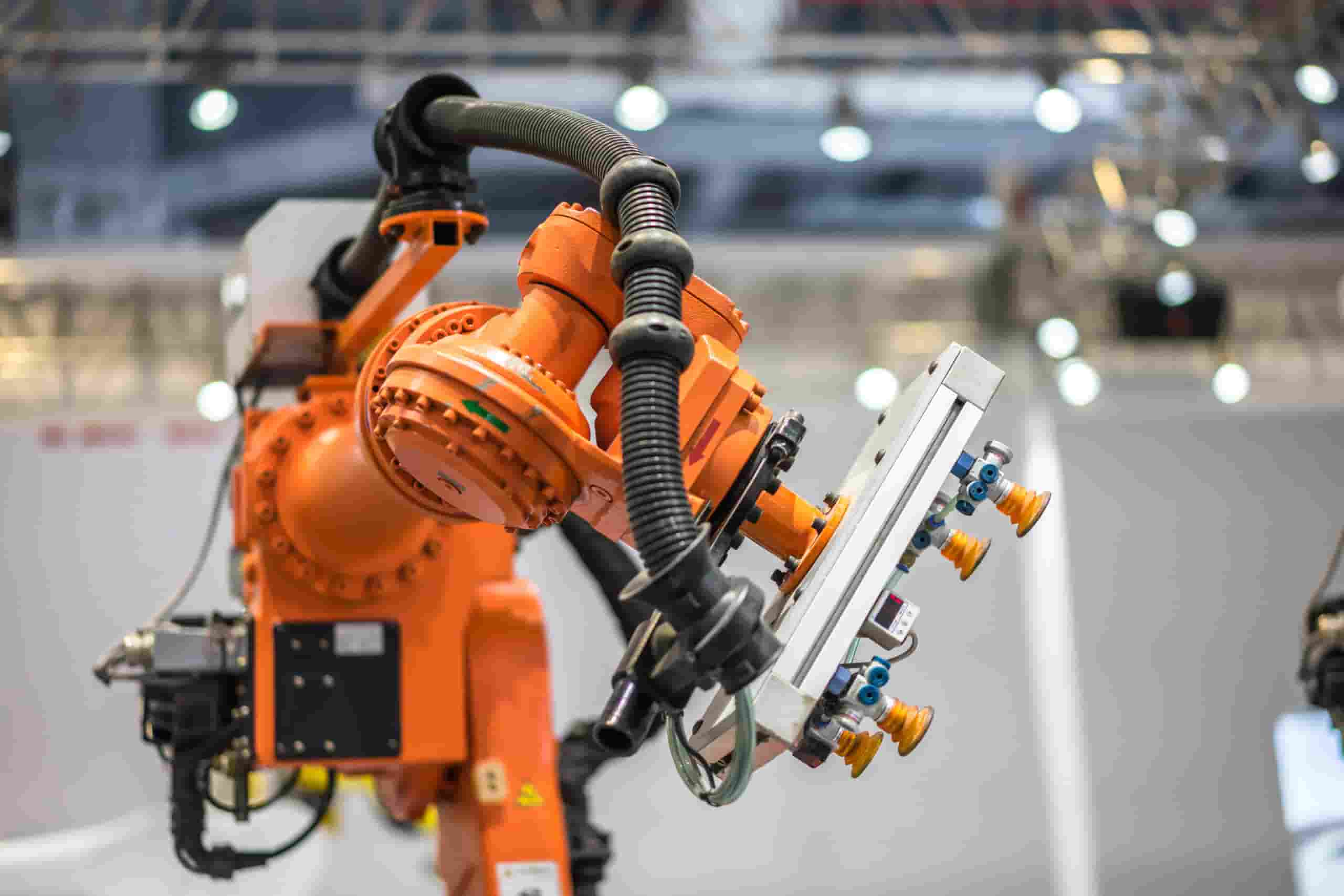
ARM Institute Collaborates with The Air Force Research Lab on Newly Awarded Projects
The projects were selected from a new Directed Project Call process intended to address robotics challenges in Department of the Air Force manufacturing and sustainment environment.
March 17, 2021 – The Advanced Robotics for Manufacturing (ARM) Institute will collaborate with The Air Force Research Lab (AFRL) on four new technology projects: Virtual Part Repair Programming for Robotic Thermal Spray Applications, Sustainment Autonomous Masking, Flexible Drilling System, and Automated Manufacturing Study of Flex Squared Solar Panels. These are the first four (4) projects selected from the ARM Institute’s new Directed Project Call process. AFRL will invest $2.3M in these projects over the next 18 months.
ARM Institute Directed Project Calls seek to quickly advance solutions for the Department of the Air Force. Specifically, these first Directed Project Calls sought to identify and fund high-payoff manufacturing improvement programs that significantly impact cost, schedule, and availability for the production and sustainment of weapon systems.
This new process strengthens collaboration between the Department of Air Force and ARM Institute Members. These Directed Project Calls respond to specific needs defined by the Department of the Air Force and expands upon the ARM Institute’s existing capabilities. AFRL and the ARM Institute were able to execute rapid mobilization and contracting to award funding within only four (4) months of notification.
“The ARM Institute’s Directed Project Call process allows for greater collaboration between industry leaders and the Department of the Air Force,” noted Nihad Alfaysale, ARM Institute Government Chief Technology Advisor, “We plan to implement these technologies at the Warner Robins Air Logistics Complex where the solutions will make a tangible difference in our operations.”
“This new process allows us to quickly address urgent and specific areas of need from the U.S. Department of Defense by leveraging the strength of the ARM Member ecosystem,” said ARM Institute CTO Arnie Kravitz, “We are proud that the Department of the Air Force has entrusted us to execute these important projects and look forward to more opportunities to collaborate.”
A description of each project follows:
Virtual Part Repair Programming for Robotic Thermal Spray Applications
Project Team Members: University of Connecticut, Titan Robotics
This project is working to implement a virtual method for robotic thermal spray operators to automatically generate the robotic programming over a repair area on a physical part within a thermal spray booth using an immersive interface. The project team at UConn will design and develop a sensor system for measuring thickness buildup over a part during various thermal spray processes. The sensory measurement will be paired with a virtual repair programming interface from Titan Robotics where the operator will simply highlight (i.e. virtual mask) the repair in the graphical user interface (GUI) and build up the thermal spray coating to a desired thickness over the selected part area for repair.
This new system will limit the human operators’ exposure to the dangerous thermal spray operation, preventing the injuries and strain caused by repetitive operations during post-processing tasks. This project will substantially advance the capability of standard robotic systems by integrating advanced sensing and robot path planning capabilities.
Sustainment Autonomous Masking
Project Team: University of Connecticut, Aerobotix
This project will leverage key Aerospace Industry Partners with 15+ years’ experience integrating Robotic Systems within a high-rate production environment to develop an Autonomous Masking Application solution. Masking, which is currently completed manually, is a necessary part of the spraying of the outer mold line fabrication process for aircraft parts. Precise placement of the tape is time-consuming and errors are costly. The culmination of this project will be demonstrated at Robins Air Force Base on a production robotic coating system. The final demonstration will show the overall technology readiness level and the ability to directly integrate to production robotic systems.
Flexible Drilling System
Project Team: Boeing, ShapeFidelity
This project centers on using collaborative robots for high force applications, including drilling and countersinking. Currently, collaborative robots cannot be used in these functions due to their force limitation. This project team will focus on the use of self-attaching (zero reaction tools) to enable these functions while ensuring the technician can work alongside the robot safely. The technician will remain key in the process; the technological advancements facilitated through this project will enable the operator to focus on quality inspection, rather than operating in ergonomically dangerous positions.
Automated Manufacturing Study of Flex Squared Solar Panels
Project Team: Boeing Spectrolab
A significant cost inhibiter of rapid satellite manufacturing is the current need of traditional wiring systems for photovoltaic power generation. Conventional solar wiring systems are heavy, difficult to install, and nonstandard because each is designed for the specific space vehicle with no modularity. This project will identify areas that are optimal opportunities to aid in the reduction of cost and increase in production to meet future market demands. The project team will identify readily available manufacturing equipment and create a plan to fully automate the Flex2 production line. This effort will deliver significant impact to all space programs utilizing these components by allowing them to increase automation thus decreasing production costs.
ABOUT THE ARM INSTITUTE
The Advanced Robotics for Manufacturing (ARM) Institute accelerates the development and adoption of robotics technologies that are the foundation of every advanced manufacturing activity today and in the future. The Institute leverages a unique, robust, and diverse ecosystem of partners across industry, academia, and government to make robotics, autonomy, and artificial intelligence more accessible to U.S. manufacturers large and small, train and empower the manufacturing workforce, strengthen the U.S. economy and global competitiveness, and elevate our nation’s security and resilience. Founded in 2017 in Pittsburgh, PA by Carnegie Mellon University and operating as an independent public-private partnership sponsored by the Department of Defense, ARM is part of the DoD Manufacturing USA® network. Learn more at www.arminstitute.org, follow @ARM_Robotics on Twitter or ARM Institute on LinkedIn.
